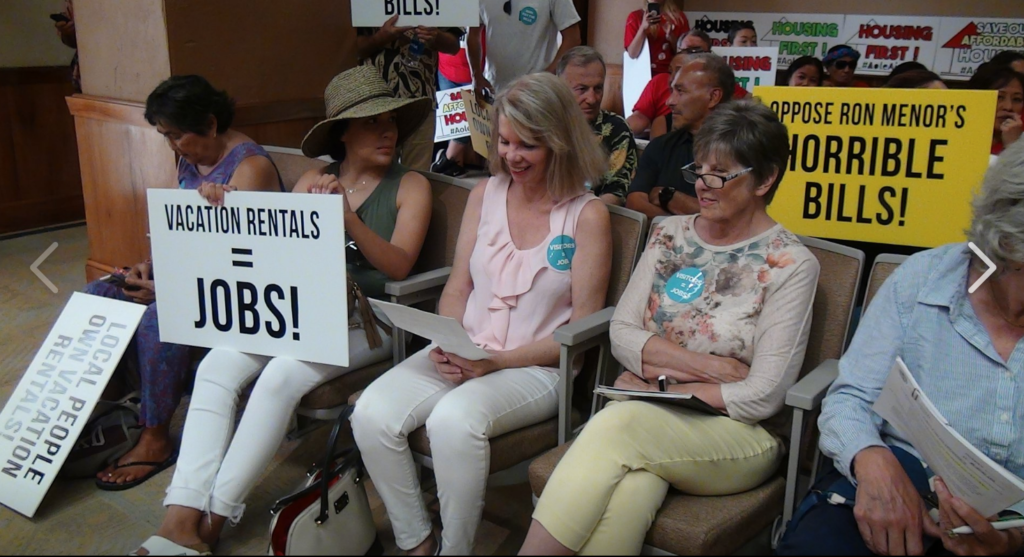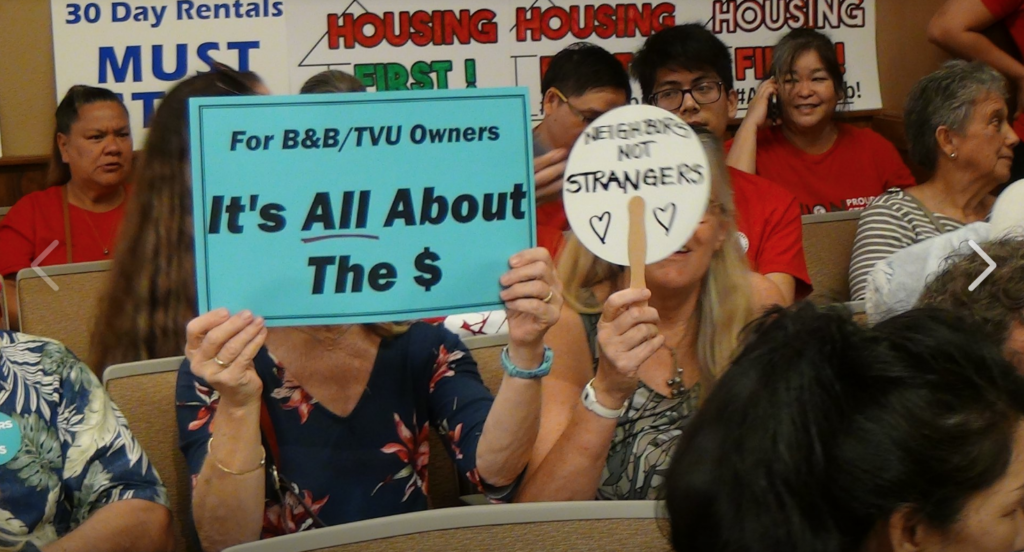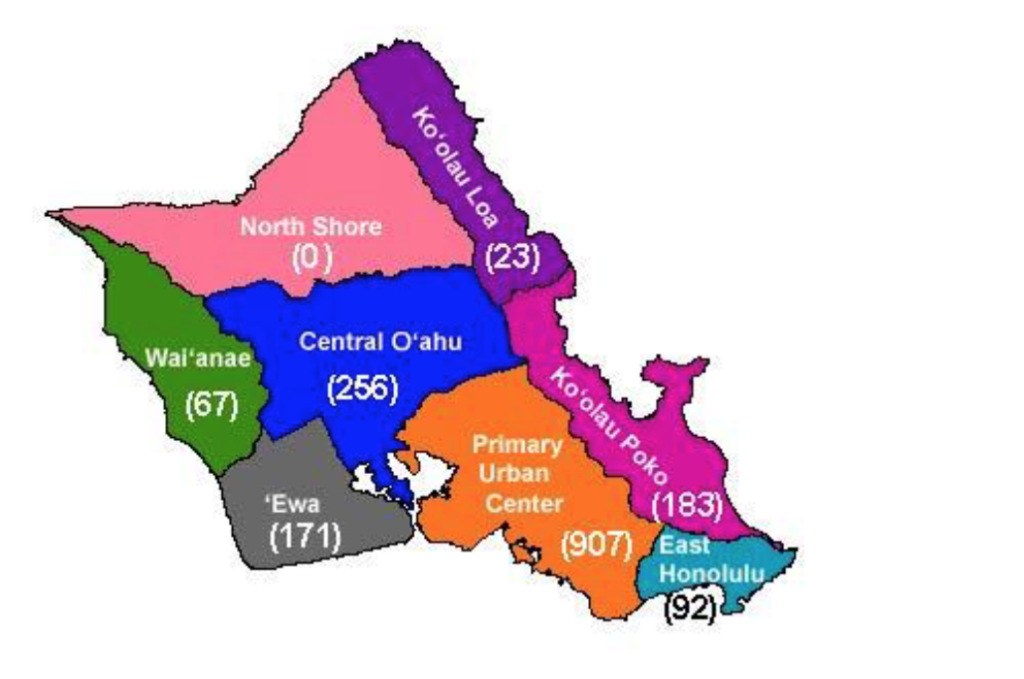The Honolulu City Council voted today at its monthly Hearing with 8 “YES” and 1 “NO” vote to adopt Bill 41. This April 13, 2022 action presented a much stricter approach to this decades-old controversy for the island of Oahu, Hawaii.
Predictably, the Opposition against Bill 41 came from the Board of Realtors and short-term vacation rentals operators. Support came from die-hard community activists and community groups who had been protesting for decades. Labor Union Unite Local 5 and housing advocate groups also supported Bill 41 on the argument that affordable housing is being usurped by the more affluent.
However, there were accusations of corruption, conflict of interest, and it being a “rush job”. There were questions as to who made the decision to draw the boundaries or decide which building was included and which building was out. There were also accusations of “insider trading”; did people in the know invest in these properties before hand?
The Director of Planning and Permitting Dean Uchida chose to recuse himself and was not seen today at the Council Hearing. However, several testifiers mentioned that the DPP Director should have recused himself at the onset. His wife is an Executive Officer with the Aqua-Ashton Hospitality which has interests include short term condo-tel in Waikiki.
I hope the Department of Planning and Permitting comes out with a Q & A information so it it will be easier to understand.
For now, those who have their Non-Conforming Units Certificates ( (NUC) will be grandfathered in. They will have to pay yearly registration fees and probably higher property taxes. This list here shows the exceptions that were provided by DPP in 1987. Other than this list, operators in residential areas are ruled out as illegal.
Notably, the 30-day contract (instead of the 29-days short term rental category) that many vacation rental operators use will no longer be allowed. It’s now changed to 90 days.
Operators can be fined up to an initial fine not to exceed $5,000 and a fine not to exceed $10,000 for each day thereafter that the advertisement is on public display. (This raises questions here too. Not every operator needs to use the standard platforms. What about private alumni or business groups?)
Here are the areas that will be permitted to have new operations:
In the North Shore of Oahu, both the Kuilima West and Kulima East Estates are allowed. Note that this area is zoned “Apartment “, not “Resort” :
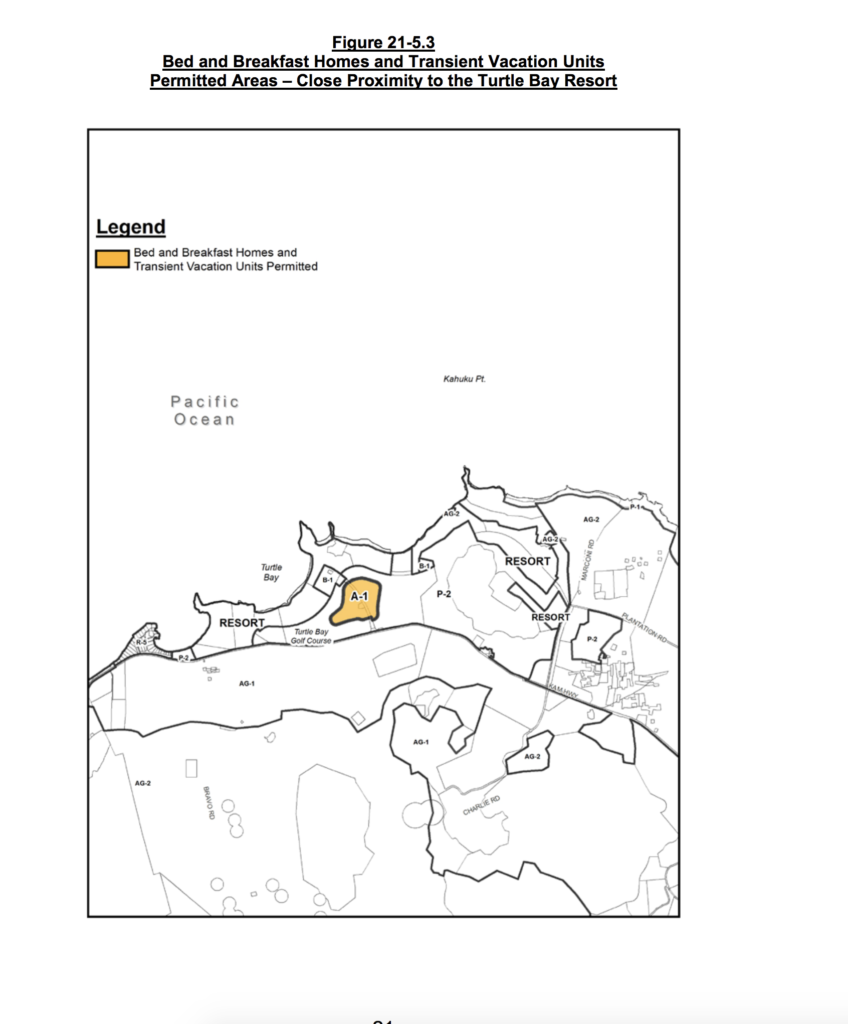
Below is the west side of Oahu in Ko’olina. However, certain Makaha areas do not appear permitted even though it was designated as “resort” in the recent Oahu General Plan. However, note the Apartment-zoned areas are now allowed in Bill 41.

Below is the Waikiki area. Note again that these are Apartment-zoned, not “Resort”.
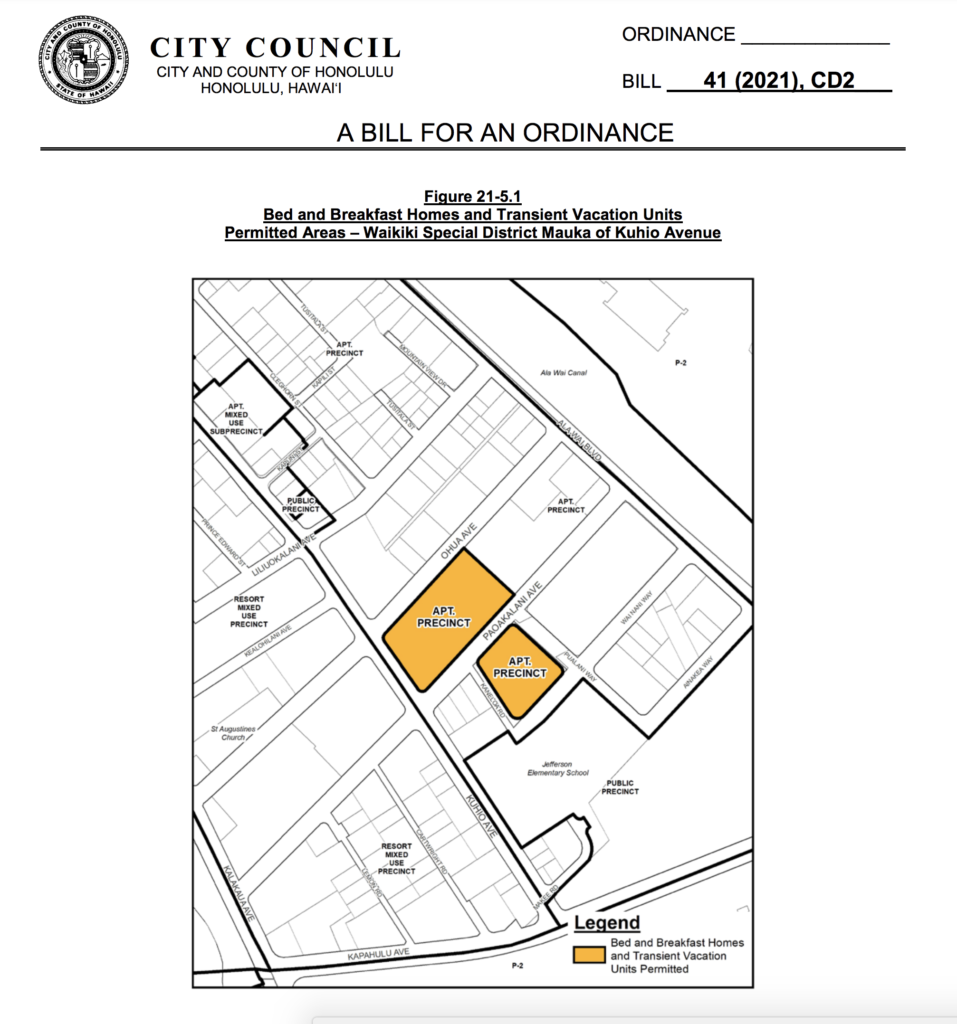
If you wish to read the fine print, here is the council approved Bill 41 document. Note the underlined language.
“Enforcement“ is the buzzword for both sides of this issue.
At the Hearing, City Councilwoman Andria Tupola who casted the lone “NO” vote and expressed her frustrations about getting correct data and clarifications. She noted that the Deputy Director was new and trying to educate herself on this issue. This was a valid point. With our years of observing and participating at Honolulu Hale, one can see the uncertainty, lack of experience, and institutional knowledge. The former Acting DPP Director Kathy Sokogawa knew the DPP workings inside and out through her decades of employment.
The DPP Deputy Director told the City Council that they would be hiring seven new inspectors. The big question is how DPP is going enforce its long list of requisites, besides registrations and so forth. And how DPP is going to handle the thousands of illegal vacation operators?
I believe that the city can expect challenges because there appears to be irregularities, inconsistencies, and discrepancies. But as the City Council likes to say of any bill, ” This is not a perfect bill, we can improve in the future.” Any lawsuit expenses against the city will be paid for by the taxpayers of Honolulu.
Prior to Bill 41, there was Bill 89 that adopted and signed by Mayor Kirk Caldwell on June 25, 2019. Bill 89 would have allowed an approximate 1,700 new vacation rentals through lottery. However, there was no traction from the Caldwell Administration despite holding rule-making discussions.
Upon being elected, Mayor Rick Blangiardi nominated Dean Uchida as the Director of Planning and Permitting. Former Acting DPP Director Kathy Sokogawa resigned and a lot of institution knowledge left with her. Bill 41 was then proposed with this first version that included the Gold Coast. It has since been taken out from the final version. There had been amendments along the process.
What is my take on this?
Before Bill 89 was finally approved and adopted, I initially testified that DPP should start by addressing the most egregious cases first. DPP did not appear to have the organization to enforce so much so quickly. It should take the bite of the elephant incrementally.
Also, I objected to making mom-and-pop bed and breakfast rentals pay more fees and taxes. How would it help our local residents if they had to keep paying more?
Will Bill 41 work? Again, the devil is in the enforcement. How is DPP going to clam down? Through the use of fines and then non-judicial foreclosures? We’ll have to wait and see how this is rolled out.
On the other side of the coin, real estate agents are already farming neighborhoods to list properties to sell. It’s a fact that luxury homes are not going to be affordable even if it’s a long-term rental. There are quite a bit of those in Oahu where properties are owned by LLCs and out-of-state investors.
Will vacation rental owners sell or will they hold? Chances are high that many will hang on because Hawaii is still a politically stable place to invest in. We should see more rentals open up to create a little more rental inventory. Even then, the value of real estate does not need to come down.


